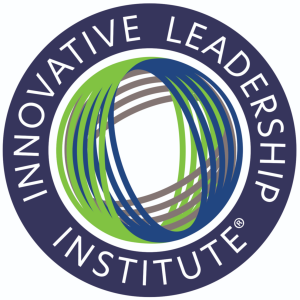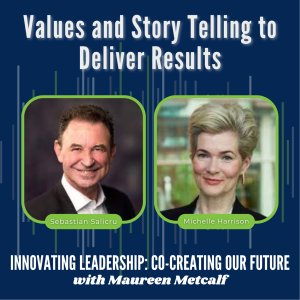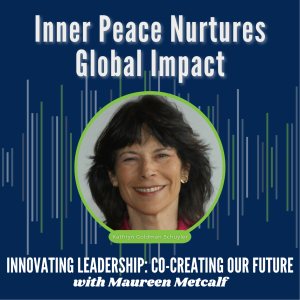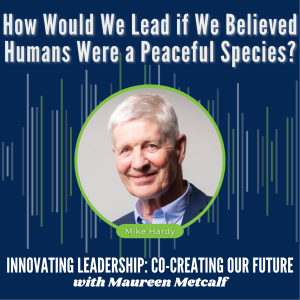Episodes

Thursday Mar 23, 2023
Thursday Mar 23, 2023
Guest: Dr. Barry Johnson
This program is part of the International Leadership Association Conference Interview series. According to Barry Johnson, "in today's world of increasing interdependency and complexity, it is vital to utilize problem solving AND both/and thinking to address your most strategic challenges and opportunities. The research is clear - leaders, teams and organizations that leverage Polarities well outperform those that don't. He makes the distinction between problems to be solved and polarities to be leveraged. Barry talks about how you to leverage your most strategic Polarities (AKA paradox, wicked problems, chronic tensions, dilemmas, etc.) to become more innovative, agile, profitable and competitive immediately and over time. He gives examples of how leaders he worked with to apply polarity thinking in large scale and global organizations. He walks through specific examples to help listeners understand how to apply polarity thinking to their real world challenges.

Thursday Mar 23, 2023
Thursday Mar 23, 2023
Guests: Sebastian Selicru & Michelle Harrison
Michelle talks about what is most important in creating sustainable success. This includes understanding the current challenges they are facing from insight to execution. Additionally, she helps them anticipate the challenges they will face. She talks about the first of its kind report that Kantar Public released at Davos focusing on the challenges governments face across the planet and how the current loss of trust impacts their ability to navigate current challenges. Sebastian’s work takes leaders and their teams to the new levels of performance and business results. He provides leaders and their teams the best opportunity to grow and develop – and maximise the greatest return of investment – by identifying and building on their talents and strengths, and unleashing their ability to consistently perform at their best, and deliver extraordinary outcomes. ▬ UNIQUENESS – he treats leadership as a research discipline, a critical social phenomenon, and essential business practice.

Thursday Mar 23, 2023
Thursday Mar 23, 2023
Guests: Margaret Heffernan & Ira Chaleff
We start with Margaret Heffernan talking about Turbulence as a chronic condition. Leadership is about building organizations that thrive in turbulence. 1. Acknowledge we are where we are. 2. Build an organization that is spectacularly alert to predict. 3. Be highly sensitive and responsive to what is happening. 4. Create and sustain an information network. 5. Know what is going on. 6. Create an environment where it is safe to say what you see. Move away from fear to open to saying what you believe about what you are seeing. Then Ira Chaleff talks about understanding that to bring out the best leadership requires the best followership. Influence is not unidirectional from leader to follower; it is bi-directional and multi-directional. They elevate each other’s performance in support of the mission that brings them together. We discuss how followers act with courage to collaborate with leaders and the idea of intelligent disobedience?

Thursday Mar 23, 2023
Thursday Mar 23, 2023
Guest: Kathryn Goldman Schuyler, Ph.D.
This interview is part of the 2017 International Leadership Association Conference Interview series in Brussels Belgium. Kathryn talks about what leaders need in order to be transformational in turbulent times. She will discuss two key areas of focus: [1] how leaders can nourish themselves so that their very being is transformational—enlivens those with whom they connect; [2] how they create healthy organizations for a healthy world She explores concrete examples of what this means and also offers practical take-away practices leaders can apply in their daily lives.

Thursday Mar 23, 2023
Thursday Mar 23, 2023
Guest: Mike Hardy
During this conversation, we talk about peacefulness – and leading toward an increased level of peacefulness. We explore the idea as humans as a peaceful species – and his search for communities that are already peaceful to emulate. We talk about a broad range of topics focusing on living in turbulent times and Mike’s reflections cultivated from a very successful career working across the globe. 1. We are defined by our self-awareness and our connection with others. We must be able to shift our selves and cultures as the world changes. 2. If we are not adapting our world view, we want to move to the past because that is what we know and where we think we will feel safer. Now, we must address the anxieties people face. 3. How do we identify places that are peaceful and replicate them rather than "fixing" or making peace? He wraps the conversation up with Mike's recommendations for what every leader needs to cultivate to promote peacefulness in their lives and work.

Thursday Mar 23, 2023
Thursday Mar 23, 2023
Guests: Subhanu Saxena & Michelle Harrison
How do we create organizations that promote mindfulness and joy during work. Subanhu talks about how to build mindfulness in organizations. Great leaders uniting people around a making positive impact on society - a deeper purpose. Great leadership starts with knowing yourself and is built through the power of introspection. This allows you to be more humble, authentic and vulnerable. Mindfulness practices allow you as a leader to be fully present and aware of the moment. Michelle talks about how she demonstrates authenticity as a leader, a CEO, and a mother. She gives a very honest account of changing business plans because of her personal commitment to her family. In an era where we talk about authenticity and balance, we often see organizations expect their leaders to continually prioritize work over family. There are certainly many times that work will need to be a priority and yet, Michelle talks about her personal decision to balance and what that looks like in her life.

Thursday Mar 23, 2023
Thursday Mar 23, 2023
Guest: Rens Van Loon, PhD
This interview explores dialogical leadership. At a high levels, dialogical leadershp involves ideas such as truth is a relational construct between the individual and society. Everything we think about truth is relational and is created in the minds of people. Second, the self-narrative is the story one constructs about the self. In this philosophy, there is no core self, just what we construct and re-construct about ourselves. By understanding the changes in the self narrative over time, we can see how this narrative impacts actions. By understanding that culture is socially created, we have the freedom to help shift it. The core of this work is that by reconstruction of the self narrative and looking at what is truly important, we can bring more of our self to every situation. We do this by asking questions and reflection to assimilate the multiple aspects of the self in our life to bring the gifts of each one into every situation.

Thursday Mar 23, 2023
Thursday Mar 23, 2023
Guest: Éliane Ubalijoro
In the context of the changes we anticipate in the coming years from population growth in Africa to climate incidents to block chain, what is required of leaders now in this era. There is nothing we can do to protect ourselves if we are not protecting each other globally. As we consider climate incident, civil unrest and economic stability, we are impacted by forces we can not control or even mitigate. While we have talked about interconnection for years, we are entering an era where we as leaders need to consider the consequences of our economic decisions. We as consumers and leaders need to consider the impact we are creating through our buying decisions and through our organizational decisions. This type of decision making requires a different level of thinking and awareness than was required in the past. We can now use apps to look at the footprint of companies we buy from. To evaluate their sustainability and social impact to inform decisions.

Thursday Mar 23, 2023
Thursday Mar 23, 2023
Guest: John Heiser MBA, JD, PhD
Business is a social institution. Can we maximize value for the firm and at the same time create value for society? How is shareholder value maximization aligned with or in conflict with social good. Mike gives examples of how he drives both profit and social impact. This includes: 1. Appreciative inquiry summit 2. Partnering with Autistic organization to hire adults with autism to fill routine jobs 3. Hiring interns to fill roles and providing education How have you created buy-in for novel processes? 1. Use tools like appreciative inquiry to create alignment, involvement, and commitment across the entire organization 2. Establish processes for inclusion of staff and clients and at the same time ensure leaders retain positive control and accountability for results

Thursday Mar 23, 2023
Thursday Mar 23, 2023
Guests: Jorrit Volkers & George Papandreou
Jorrit talks about the leadership journey Deloitte is creating for people from entering the firm through their retirement. They developed a narrative about self, other and what is connecting the two. A few key points from the interview: 1. Deloitte is not picking one framework or theory but rather pulling from a range of theories that can be agile. 2. There are taking a significant focus on purpose and values. 3. Remote working is improved when people launch in person then move to remote working. The second speaker in this interview is George Papandreou, Former Prime Minister of Greece. He talks about his leadership journey in democracy. He discusses the opportunity to take ownership or our voice as citizens to shape our societies? He also talks about use and abuse of power and ethics of leadership. There is a shared theme between Jorrit and George talking about leadership purpose and ethics required in leadership. This theme serves as a foundation for creating a just world.
